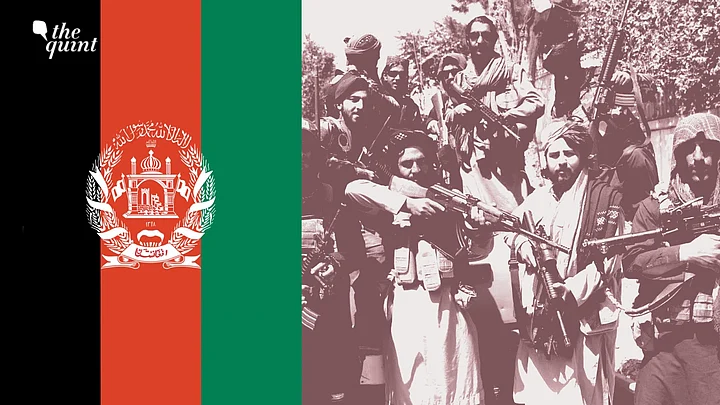More than three weeks after the militant organisation seized the reigns of Afghanistan, the Taliban on Tuesday, 7 September, announced the country’s new 'acting' government.
Mullah Hasan Akhund, a close associate of Taliban founder Mullah Omar, has been named as the head of the interim government, while the group's co-founder Abdul Ghani Baradar, the head of the movement’s political office, will be his deputy.
A Taliban veteran touted as "one of the most effective Taliban commanders" by the United Nations, and "one of the most ineffective and unreasonable Taliban leaders" by a document of the US' National Security Agency, Akhund has held great prominence within the ranks of the militant organisation.
But who is Mullah Hasan Akhund? Here’s what we know.
Islamist Schooling, 'One of the Original 30': Mullah Hasan Akhund's Beginnings
Born in the Pashmul village of Panjwai District, Akhund hails from the Kandahar province of Afghanistan that was the birthplace of the Taliban. He is believed to be in his late sixties, and is one of the most senior members of the organisation.
A descendant of the Kakar tribe, Akhund has trained in Islam at various madrassas in Pakistan. According to a report by The Conversation, he has been schooled in a strict brand of Islamist ideology, known as Deobandism.
In the 1970s, during the communist rule in Afghanistan, Akhund had aligned himself with the anti-Soviet forced Hezb-e-Islami, as per a US intelligence document.
He is one of the founding members of the Taliban, and part of the original 30 that laid down the bedrock of the insurgency movement.
'Close Associate of Taliban Founder': Akhund's Roles Within the Taliban
Akhund has remained an influential presence within the Taliban over the past few decades.
He had hitherto been the head of Rehbari Shura, the leadership council that is the Taliban’s decision-making body – a post he had held for 20 years. Since the ousting of the militants from Afghanistan in 2001, Akhund has been reportedly operating in exile from Pakistan.
During the previous Taliban dispensation (1996-2001), Akhund had served as the foreign minister, the deputy prime minister, the governor of Kandahar, and the First Deputy of the council of ministers.
According to a UN document, Akhund had been "a close associate and political adviser" to Mullah Omar, the founder of the Taliban.
He is highly respected within the movement, especially by the supreme leader of the Taliban, Haibatullah Akhunzada, news agency Reuters reported. According to reports, it was Akhunzada who suggested his name to head the government.
'Hardliner' Figure, On UN Blacklist
The United Nations Security Council had, in 2001, placed Mullah Hasan Akhund on a sanctions list concerned with the “acts and activities” of the Taliban.
Akhund is widely accepted as the architect of the Taliban-authorised attack on the Bamiyan Buddhas in 2001, two 6th century heritage monuments that had been located in central Afghanistan, which were subsequently taken under UNESCO's care.
A document of the UNSC records him as "one of the most effective Taliban commanders as at early 2010."
Akhund, described as a hardliner by an NSA document, which notes that "Akhund holds prejudices against both westerners and the mujahadeen."
He has been understood as more of a political and a religious figure that one engaged in military activity, as per Al Jazeera, which reports that he has authored several works on Islam.
(With inputs from Al Jazeera, Reuters and The Conversation)
(At The Quint, we question everything. Play an active role in shaping our journalism by becoming a member today.)
